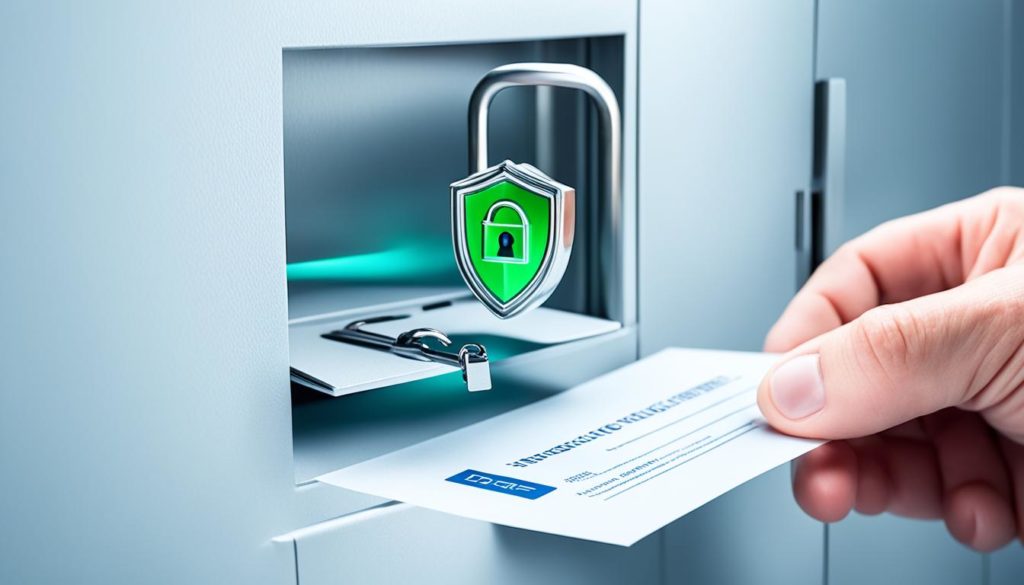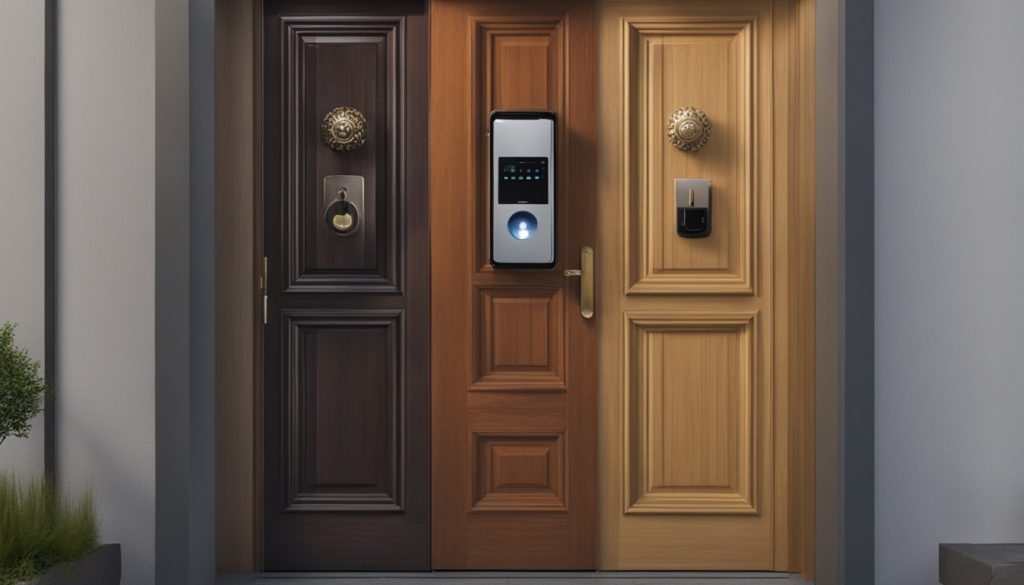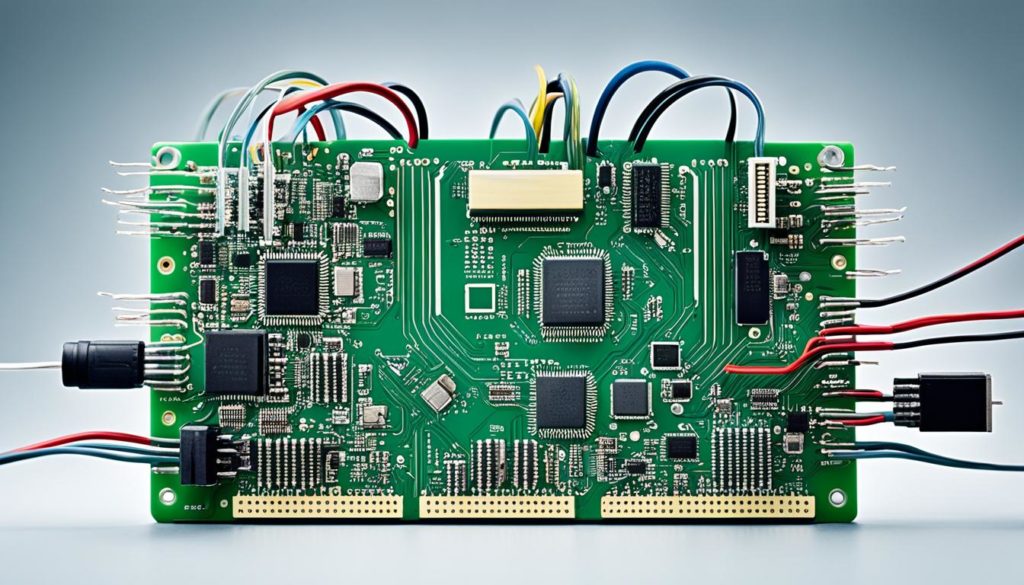
Did you know that traditional file-sharing methods like email and thumb drives can be unsafe? They may lead to unauthorized access and data breaches. To tackle these security problems, industries such as mergers and acquisitions (M&A), initial public offerings (IPOs), and company audits now rely on Virtual Data Rooms (VDRs). These online repositories provide top security to keep important info safe and private.
Corporate teams, bankers, and legal experts use VDRs for secure document sharing. With tech like data encryption, dynamic watermarking, and strong access rules, companies can handle big deals safely and confidently. Moving to VDRs means better security and smoother teamwork, plus it helps with following laws.
Using a VDL has lots of perks, like sorting documents automatically and keeping track of analytics. Whether you’re trying to follow rules or protect against hackers, data security with VDRs is all about keeping sensitive documents under wraps. Exploring all the great things about Virtual Data Rooms shows they’re the best option for managing documents securely.
Key Takeaways
- Virtual Data Rooms provide strong security measures compared to traditional file-sharing methods.
- Industries like M&A, IPOs, and company audits heavily utilize VDRs for secure document handling.
- Key features of VDRs include end-to-end encryption, dynamic watermarks, and robust access controls.
- VDRs enhance collaboration and compliance while preventing unauthorized access to sensitive data.
- Organizations using VDRs can manage high-stakes transactions efficiently and securely.
What is a Data Room
A data room is a secure way to share important papers. It lets in only those who should see them. This helps prevent unwanted eyes from seeing private information. It’s very important for things like money deals, legal work, and private business stuff.
Data Room Definition and Overview
The idea of a data room covers both old and new ways to share documents safely. In the past, a physical data room was a secure place for important papers. Yet, this had its issues, like hard logistics and being hard to get to. The virtual data room (VDR) is a newer, digital way that solves these issues. VDRs let people share documents easily, no matter where they are, thanks to secure online services (SaaS).
Types of Data Rooms: Physical vs Virtual
| Feature | Physical Data Room | Virtual Data Room |
|---|---|---|
| Accessibility | Limited to one spot | Can be reached worldwide online |
| Security | Protected by physical guards | Guarded by high-tech online safety steps |
| Efficiency | Slow and takes lots of work | Fast and easy to get documents |
| Cost | Expensive to keep up | Saves money with regular payments |
| Use Case | Used for old-school deals | Great for new deals and working together |
Physical data rooms were good back in the day, but virtual data rooms have changed the game. These online spots are key for big moves like joining companies. They offer top-notch security, are easy to get to from anywhere, and make things move quicker.
Key Features of Virtual Data Rooms
Virtual data rooms (VDRs) are now essential for secure document sharing in business. They offer a clear, controlled way to exchange sensitive info. Let’s look at important features that make VDRs so valuable for different business needs.
Robust Access Control
A key part of a secure data room is strong access control. VDRs let admins set who can view or interact with documents. This keeps sensitive files safe while allowing some users to do their work. It lets stakeholders like lawyers and auditors access what they need safely.
Data Encryption
Data encryption is crucial for keeping data safe in a VDR. It uses tough algorithms to protect information. With things like AES 256-bit encryption, data is secure both when sent and stored. This makes VDRs reliable for important deals like M&As and audits.
Watermarking and Dynamic Watermarks
VDRs use watermarks to stop unauthorized sharing of documents. These marks show user info and access times. Dynamic watermarks change in real-time, making it easy to track where documents go. This adds extra security to your data.
Activity Tracking and Audit Logs
Tracking activities and keeping audit logs are crucial for transparency in VDRs. They record every action, such as views and downloads. This creates a detailed history of document use. Activity records and logs offer insights and ensure accountability, letting companies watch how their data is used.
Two-Factor Authentication (2FA)
Two-factor authentication (2FA) boosts VDR security by needing two proofs for access. This means a password and a mobile device, for example. 2FA cuts down on unauthorized access by confirming who users are in two ways.
Overall, virtual data rooms are great for managing confidential documents securely and effectively. Key features like access control, encryption, watermarking, tracking, and 2FA are what make a VDR so secure. They make sure business deals and collaborations go smoothly and safely.
Benefits of Using Virtual Data Rooms
Virtual Data Rooms (VDRs) bring lots of benefits. They make business work smoother and keep data safe. In a secure space, VDRs protect from online threats and keep data safe and private.
Enhanced Security and Data Protection
The best thing about VDRs is their strong security. They use the best encryption, control who gets in, and check security often. This keeps important info safe from hackers and prying eyes.
Efficiency and Time-Saving
VDRs make work efficient. They automate sorting files and keeping track of document updates. This saves time, reduces costs, and helps close deals faster.
Global Accessibility
VDRs can be reached from anywhere, allowing teams worldwide to work together easily. This means everyone can join in on deals, no matter where they are. The cloud lets people work together in real-time, making business more dynamic.
Detailed Analytics and Monitoring
VDRs provide valuable insights through detailed analytics. This helps companies make smart choices and manage projects well. Watching user actions closely adds security and helps meet legal rules.
| Benefits | Details |
|---|---|
| Enhanced Security | Advanced encryption, access controls, and regular audits to ensure data protection. |
| Efficiency | Automation of manual tasks for quicker transaction finalization and cost efficiency. |
| Global Accessibility | Real-time, cloud-based collaboration across geographical boundaries. |
| Detailed Analytics | In-depth insights into document interactions and real-time activity monitoring. |
Virtual Data Rooms vs Cloud Storage Apps
Virtual Data Rooms (VDRs) and cloud storage apps both offer document storage. Yet, VDRs have better security for business deals.
Security Features
VDRs have top-notch security like Digital Rights Management and dynamic watermarking. They protect against unauthorized access better than cloud storage. Cloud apps are good for daily use but miss out on advanced security. For details, check out this comprehensive comparison.
Document Permission Settings
VDRs let you control who can view or edit documents. This is key for big data handling in business deals. Cloud storage has simpler settings that might not be enough for secure data handling. Learn more about their differences in this analysis.
Advanced Collaboration Tools
VDRs have unique tools like Q&A sections and version control. These boost efficiency in projects needing detailed reviews. They also show detailed user activity, unlike basic tools in cloud storage.
Use Cases and Suitability
VDRs fit sectors like finance and healthcare, needing top security. They are ideal for M&As and board meetings. Cloud storage is better for everyday tasks but not for special requirements. For more insights, look at this virtual data room guide.
| Feature | Virtual Data Rooms | Cloud Storage Apps |
|---|---|---|
| Security | Advanced (DRM, dynamic watermarking) | Basic |
| Document Permission Settings | Granular control | Basic settings |
| Collaboration Tools | Advanced (Q&A, version control) | Standard |
| Use Cases | M&As, due diligence, high-security sectors | General file sharing, everyday use |
Choosing the Right Data Room Provider
Finding the best data room provider is key for good online data room management. With so many options out there, it’s critical to think about several aspects. Make sure they meet industry standards like ISO 27001 and have top-notch security, including 256-bit AES encryption.
Look for data room software that guards your data well. Features should include two-factor authentication and user permissions you can change. A study shows that 47% of providers stress data encryption. Companies like ShareVault lead the pack, giving better security and great user experiences.
Good customer support is also essential. A huge 62% of providers offer 24/7 help, ready to fix any problem quickly. This is vital for businesses working globally, where time differences matter. Top providers, mentioned here, are focused on meeting user demands with a wide range of services.
Being able to customize your data room is important for 53% of users. Custom features can make the platform feel more personal and match your company’s style. Plus, things like mass uploads, special watermarks, and integrated NDAs help your work flow better and keep your data safe.
- Ensure the data room software offers grant and revoke access functionalities swiftly.
- Confirm the presence of multiple-server backups to safeguard against data loss.
- Check for detailed analytics and tracking to monitor investor activities and project progression.
| Criteria | Percentage (%) |
|---|---|
| Data Encryption Priority | 47% |
| 24/7 Customer Support | 62% |
| Customizable Branding | 53% |
| Compliance with ISO 27001 | High |
For startups getting investments, a secure online data room is a must. It should serve many users and always be available. Today, venture capital firms lean towards virtual data rooms more. Picking providers with good track records in these fields will give you the best service for your needs.
In brief, choosing may look tough, but focus on security, support, and customization. This approach will help pick the right data room service. Your business’s sensitive info will be in good hands, managed well and safely.
Conclusion
Online data rooms have changed how businesses share documents securely. Virtual Data Rooms (VDRs) are key in the digital era. They come with features that boost security, increase work speed, and make data easy to access.
VDRs protect vital documents through access control, data encryption, and watermarking. They let companies work smoothly from anywhere, thanks to detailed analytics and global access. This helps organizations make smart decisions, no matter where they are.
Selecting the best Virtual Data Room provider is vital as secure sharing becomes more important. VDRs enhance data safety and help teams work better together. For businesses around the world, using VDRs shows a strong dedication to data security and excellence.
FAQ
What is a data room?
A data room is a place for sharing documents safely. Only those allowed can see them. Originally, these rooms were real rooms. Now, they are mainly online, giving better security and efficiency.
How do Virtual Data Rooms differ from physical data rooms?
Unlike physical rooms requiring you to be there, Virtual Data Rooms (VDRs) are accessed online. VDRs provide better security, can be accessed from anywhere, and have extra features like encryption and tracking.
What features make Virtual Data Rooms secure?
They have strong security with controlled access, encryption, watermarking, and tracking. There’s also two-factor authentication for extra safety.
What types of transactions and processes benefit from using Virtual Data Rooms?
VDRs are great for important business deals and legal matters. They’re used for sharing sensitive documents securely and efficiently.
Why should businesses choose Virtual Data Rooms over standard cloud storage apps?
They provide better security with detailed permissions and special tools. It’s why VDRs are chosen for complex and sensitive business tasks, unlike regular cloud apps.
How do Virtual Data Rooms enhance efficiency and save time?
VDRs speed up business tasks with automation and instant worldwide access. They make collaborating across the globe fast and easy.
How do we choose the right Data Room provider?
Look for providers with the right certifications and security features. Consider user-friendly design, customization options, support quality, and tools like OCR and analytics. Your business needs and what the transaction requires are key.
What are the benefits of using Virtual Data Rooms?
They offer strong security, save time, can be accessed globally, and give detailed analytics. All these benefits make managing and sharing sensitive documents secure and efficient.
What makes Virtual Data Rooms more secure than traditional file-sharing methods?
They use top-notch security techniques, like encryption, strict access rules, audit trails, and two-factor auth. These prevent unwanted access and leaks.
Can Virtual Data Rooms be customized for specific business needs?
Yes, they can be tuned to fit varied business tasks and needs with adjustable security, permissions, and features, making them versatile for many industries.
Future App Studios is an award-winning software development & outsourcing company. Our team of experts is ready to craft the solution your company needs.










